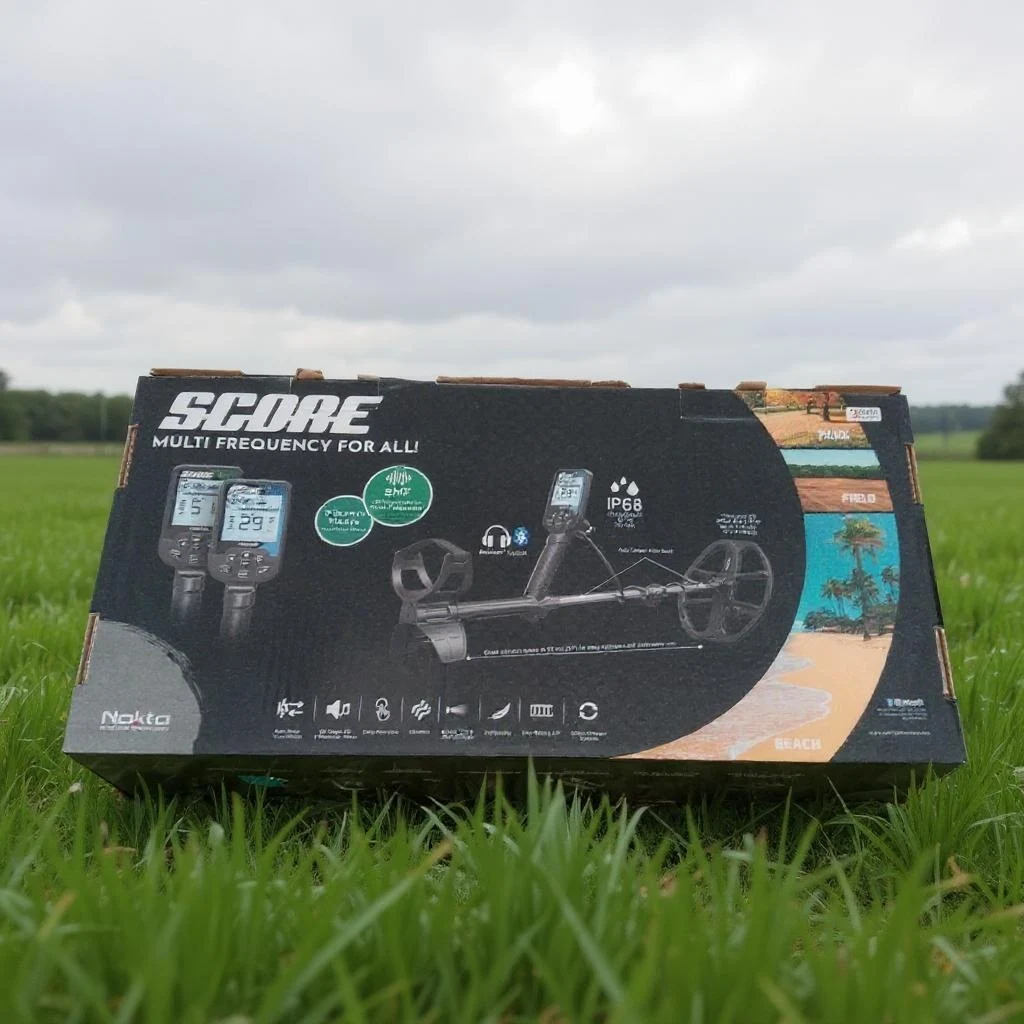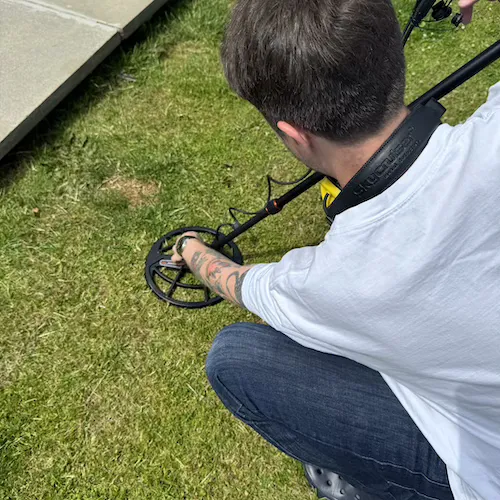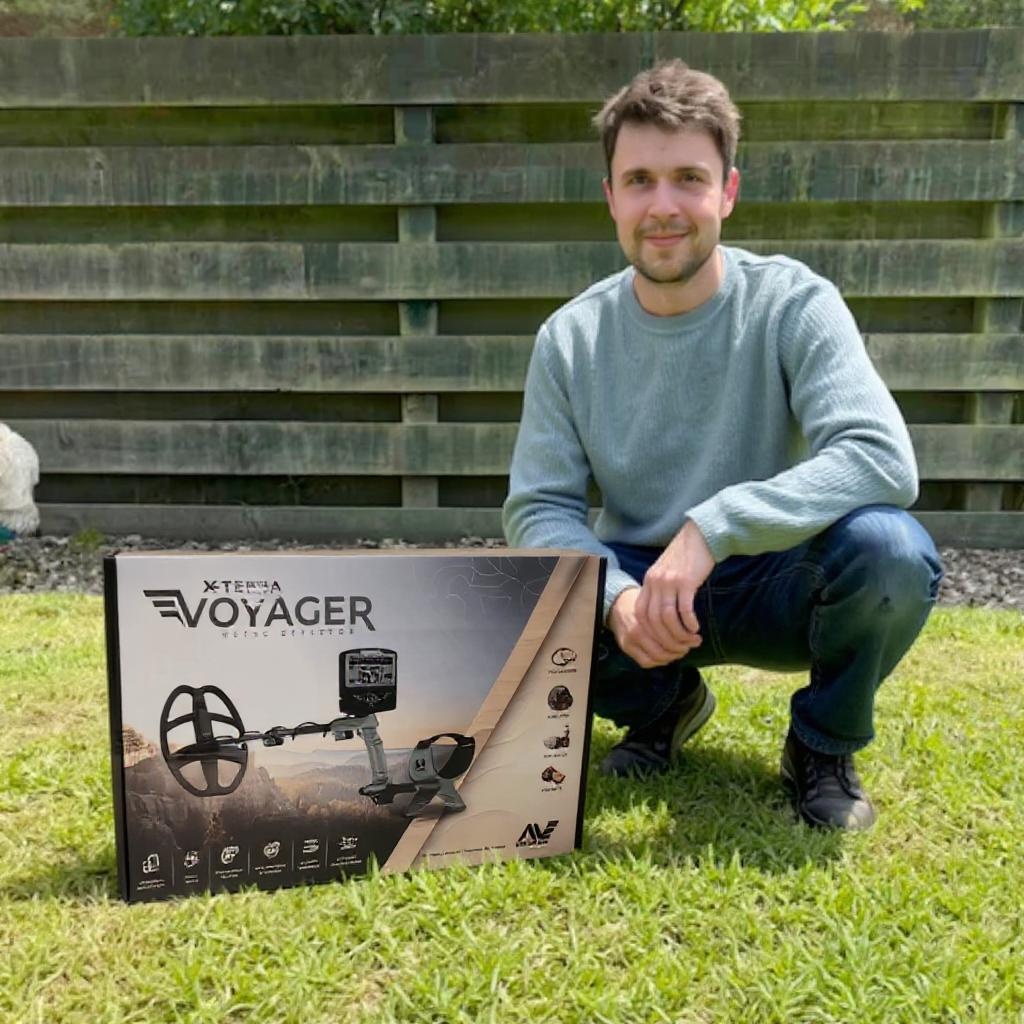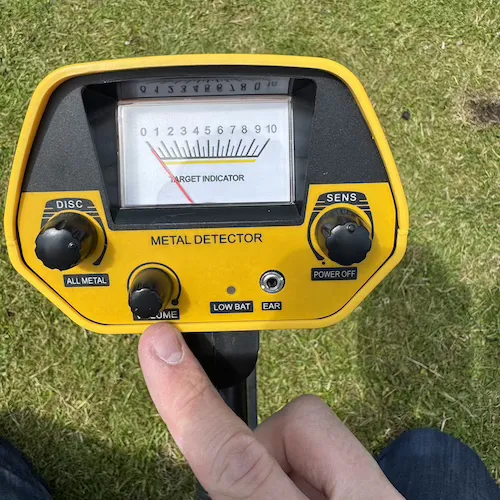Where To Legal Metal Detecting Locations In UK

Written by Piotr Lesniewski
Detectorist • Scotland
As an Amazon Associate we earn commission from qualifying purchases. Read our full Affiliate Disclosure.
You'll find yourself navigating a complex web of regulations when searching for legal metal detecting spots in the UK. While the hobby isn't outright banned, knowing where you can actually swing your detector without breaking the law makes the difference between a successful hunt and potential legal trouble.
The rules vary dramatically depending on location type. What seems like public access doesn't always mean you're free to detect.
Key Takeaways
- You Can Legally Metal Detect On Private land with written landowner permission including farms, fields, woodlands, and gardens is the safest legal option.
- Crown Estate beaches are mostly free to detect, while local authority beaches may require permits or have restrictions.
- Organized metal detecting rallies and events provide pre-approved sites with all permissions and legal compliance handled beforehand.
- Common land and Forestry Commission land require written permission from relevant authorities before metal detecting is permitted.
- Always check local council regulations for public parks and beaches as rules vary by location and authority.
Private Land (with Landowner’s Permission)
You'll find that private land offers some of the best metal detecting opportunities in the UK, including productive locations like farms, fields, woodlands, and gardens.
These areas often hold the most promise for significant finds since they're typically less searched than public spaces. However, you must always secure written permission from the landowner before detecting on any private property.
Farms
Farms represent some of the most productive metal detecting locations in the UK. They offer vast areas of agricultural land where centuries of human activity have left behind coins, jewelry, and historical artifacts.
You'll find that farmers are often receptive to metal detecting requests, especially if you offer to share any interesting finds or provide historical information about their land.
Always approach farmers respectfully and explain your hobby clearly. Many appreciate help locating lost farm equipment or machinery parts.
You should avoid detecting during planting or harvesting seasons when your presence might interfere with operations. Consider offering to fill in any holes and remove modern trash you encounter.
Remember that written permission is essential, and you must follow the Portable Antiquities Scheme for recording significant discoveries.

Fields
Fields beyond working farms offer some of the richest metal detecting opportunities across the UK. You can find everything from ancient meadows to former battlefields where history lies just beneath the surface. You'll find pastures, hay meadows, and unused agricultural land that haven't been heavily disturbed by modern farming equipment.
Always secure written permission from the landowner before detecting. Many field owners are receptive if you approach them respectfully and explain your hobby. Offer to share interesting finds and restore the ground to its original condition.
Research the field's history beforehand – old maps can reveal former settlements, Roman roads, or medieval sites. Check for footpaths, bridleways, and public rights of way that might cross the property, as these areas often yield historical artifacts from centuries of travelers.
Woodlands
Where else can you discover centuries-old artifacts hidden beneath layers of fallen leaves and forest floor? Woodlands offer exceptional metal detecting opportunities, often yielding medieval coins, buckles, and pilgrim badges lost by travelers who used ancient forest paths centuries ago.
You'll need written landowner permission before detecting in any woodland. Private forests require direct contact with owners, while commercial forestry operations typically have formal application processes.
Historic woodlands near old settlements often produce the most rewarding finds, as they've served as boundaries, meeting places, and travel routes throughout history.
Be mindful of environmental protection laws and wildlife habitats. Many woodlands have legal restrictions regardless of landowner permission. Check for Site of Special Scientific Interest designations and avoid sensitive areas during breeding seasons.

Gardens
Moving from expansive woodlands to more intimate settings, gardens present some of the most accessible and potentially rewarding metal detecting locations for beginners and experienced detectorists alike.
Your own garden offers the perfect starting point. You don't need permission from anyone else, and you can practice your technique without pressure. Friends' and family members' gardens provide excellent opportunities once you've gained their written consent.
Older properties often yield Victorian coins, jewelry, and household items. You'll find gardens particularly rewarding because they're typically well-maintained, making recovery easier and reducing damage to vegetation.
Always fill in your holes completely and respect flower beds, vegetable patches, and landscaping. Consider detecting during winter months when garden activity is minimal and plants are dormant.

Beaches (Some Free, Some Need Permit)
You'll find that beach metal detecting rules vary significantly across the UK depending on who owns or manages the coastline.
Crown Estate beaches offer the most freedom, as they're generally open to detecting under existing permissions. Local authority beaches often require specific permits or have detecting restrictions in place.
Scottish beaches typically provide open access for metal detecting, though you're still legally required to report any significant finds you discover.
Crown Estate Beaches – Mostly free to detect with general permission
When you're looking for beach detecting opportunities, Crown Estate beaches offer some of the most accessible options across England and Wales. The Crown Estate manages approximately 55% of the UK's coastline, and they've granted general permission for metal detecting on many of their beaches without requiring individual permits.
You can detect freely on most Crown Estate beaches, but you'll still need to follow their conditions. These typically include avoiding environmentally sensitive areas, respecting wildlife protection zones, and adhering to the Treasure Act and Portable Antiquities Scheme requirements.
Before heading out, check the Crown Estate website or contact local offices to confirm which specific beaches fall under their management and whether any temporary restrictions apply to your chosen location.

Local Authority Beaches – May require a permit or have restrictions
While Crown Estate beaches offer straightforward access, local authority beaches operate under different rules that can vary significantly between councils. You'll need to research each council's specific policies before detecting on their beaches.
Many councils require permits, which often come with fees ranging from £20-100 annually. Some authorities prohibit metal detecting entirely, while others allow it only during certain hours or seasons.
You might face restrictions during busy summer months or nesting seasons for wildlife protection. Contact the relevant council's leisure services or environmental department directly. They'll provide current regulations, application forms, and any restricted areas.
Don't assume neighboring councils have identical rules – policies can differ dramatically even between adjacent authorities. Always carry your permit when detecting to avoid potential fines or confiscation of equipment.
Scotland Beaches – Generally open access, but reporting finds is still required
Scotland's beaches offer some of the most accessible metal detecting opportunities in the UK, thanks to ancient rights of responsible access enshrined in the Land Reform (Scotland) Act 2003.
You can detect on most Scottish beaches without permits, but you must follow the Scottish Outdoor Access Code and act responsibly. You're still legally required to report significant finds to the Treasure Trove Unit, Scotland's equivalent of the Portable Antiquities Scheme.
Unlike England and Wales, Scotland doesn't have formal treasure laws – instead, all archaeological finds technically belong to the Crown.
Check local council websites for any specific restrictions, particularly around nesting bird areas or designated conservation zones. Always fill in holes, remove litter, and respect other beach users' enjoyment.

Scheduled Metal Detecting Rally Sites
Scheduled metal detecting rally sites offer perhaps the most straightforward way to enjoy your hobby legally. These organized events handle all permissions, landowner agreements, and legal compliance beforehand, so you can focus entirely on detecting.
Rally organizers secure proper permissions from landowners and ensure all necessary arrangements are in place. You'll typically pay an entry fee that covers access, often including meals and prizes.
Popular events like Detectival and the Rodney Cook Memorial Rally attract hundreds of detectorists to carefully selected sites. These rallies provide excellent opportunities for beginners to learn proper techniques and etiquette from experienced detectorists. You'll find camaraderie, expert advice, and the peace of mind that comes with knowing you're detecting completely legally and responsibly.
Common Land or Open Access Land
Common land and open access areas present a complex legal landscape for metal detectorists that requires careful navigation. You'll need to understand that "open access" doesn't automatically grant metal detecting rights – the law treats these activities separately from general public access.
You must still obtain written permission from the landowner or commoners who hold rights over the land. This applies even if you can freely walk across the area.
Many common lands have protective designations that prohibit metal detecting entirely. Before detecting on any common or open access land, research the specific legal status and contact the relevant authorities.
Local councils often maintain registers of common land ownership. You'll avoid legal complications by treating these areas with the same permission requirements as private property.

Forestry Commission Land (with Permission)
The Forestry Commission manages vast woodland areas across the UK where metal detecting opportunities exist, though you'll need specific permission before searching. You can't simply turn up and start detecting on their land without authorization.
Contact your local Forestry Commission office to inquire about metal detecting permits. They may grant permission for specific areas under certain conditions, particularly if you're part of an organized group or research project.
Some locations host permitted detecting events throughout the year. When permission is granted, you'll typically need to follow strict guidelines about where you can search, what you can remove, and how to report significant finds.
Always respect any restrictions on protected archaeological sites within forestry land and follow the Treasure Act requirements for valuable discoveries.
Conclusion
You've got several legal options for metal detecting in the UK, but you'll always need proper permissions first. Whether you're exploring private land, beaches, or public spaces, don't skip the research phase.
Check local regulations, contact landowners, and get written permission when required. You'll avoid legal troubles and help preserve the hobby's reputation.
Remember, responsible detecting today ensures you'll have access to great sites tomorrow.
Author Profile

Piotr Lesniewski
"Digging up the past, one signal at a time."
Polish-born, Scotland-based, and obsessed with the beep. My passion began decades ago, exploring fields with my Dziadek (grandfather). Now, with over 10 years of digging under my belt, I'm here to share everything I've learned—unfiltered and unbiased—to help you unearth your own piece of history. No sales pitches, just real field experience.